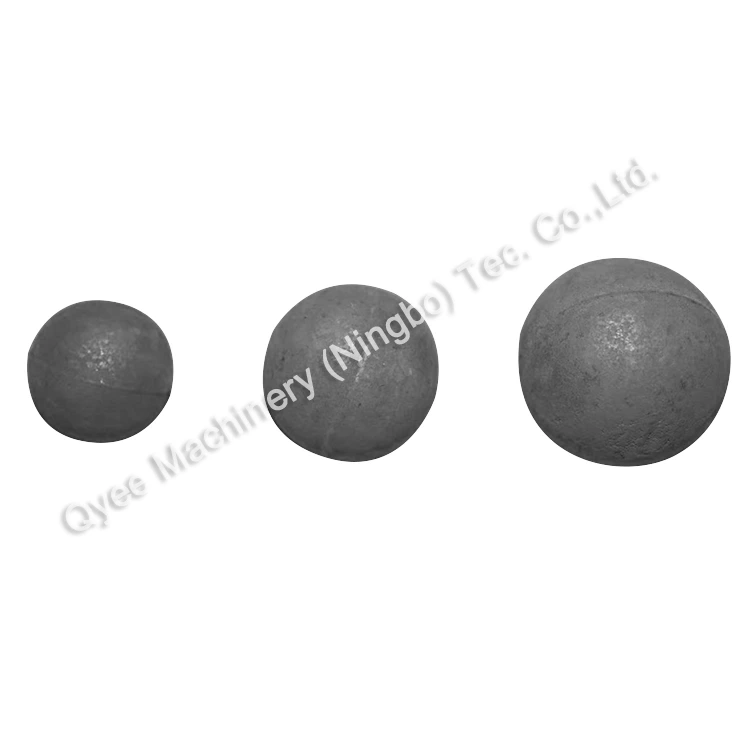What Are Casting Balls Used For?
2025-09-12
Casting balls are spherical grinding media primarily used in industrial ball mills to reduce the size of raw materials and liberate valuable minerals. They are a critical component in the grinding process across mining, cement production, and various manufacturing sectors. Their primary function is to be loaded into a rotating mill where impact and abrasion break down ore, clinker, or other substances into a fine powder. The quality and specification of the casting ball directly determine the efficiency and cost of the entire milling operation.
Key Applications of Casting Balls
The use of casting balls is vital in several key industries:
1. Mining and Mineral Processing: This is the largest application. Casting balls grind copper, gold, iron ore, and other metallic ores to a fine consistency, allowing for the separation and extraction of precious metals.2. Cement Manufacturing: In cement plants, casting balls are used to pulverize limestone, clinker, and other additives into the fine powder that is the essential ingredient of cement.
3. Chemical and Industrial Processing: They are employed in grinding pigments, ceramics, and other industrial raw materials where fine milling is a required production step.
Our foundry produces casting balls that meet the rigorous demands of these diverse applications, ensuring consistent performance and reliability.
Product Parameters and Specifications
Our casting balls are manufactured to precise standards, ensuring high performance and long service life.
The following table provides a detailed overview of our standard product specifications:
| Parameter | Specification | Importance |
| Diameter | 20mm - 130mm | Determines the size of the final ground material |
| Hardness (Surface) | 60-65 HRC | Directly impacts wear rate and grinding efficiency |
| Chrome Content | 18% - 22% | Enhances corrosion resistance and overall durability |
| Impact Value | ≥ 5.0 J/cm² | Measures resistance to breaking or shattering |
| Hardness Decline Depth | ≤ 2mm | Ensures consistent performance throughout the ball's life |
Our factory utilizes advanced quality control systems to ensure every batch of Qyee casting balls meets these exacting parameters.
Frequently Asked Questions (FAQs)
Q1: What is the difference between cast grinding balls and forged grinding balls?
Cast grinding balls, like our Qyee products, are made by melting metal and pouring it into molds to form a sphere. They are typically high-chrome alloy and excel in abrasive wear applications. Forged balls are made by hammering and shaping hot metal into a spherical shape and are generally made from carbon steel. The key difference is in wear resistance; our high-chrome casting balls offer significantly lower consumption rates in most industrial grinding applications, leading to lower overall operating costs.
Q2: How do I choose the right size of casting ball for my ball mill?
Choosing the correct size is crucial for optimal mill efficiency. The size depends on the size of the material being ground and the desired final particle size. A general rule is that larger balls are better for breaking down large, hard ore, while smaller balls are suited for fine grinding. Our technical team at Qyee Machinery can provide a detailed analysis based on your mill specifications, feed size, and target grind to recommend the perfect casting ball size for your operation.
Why Choose Our Casting Balls?
We at Qyee are committed to providing grinding solutions that maximize our clients' operational efficiency. Our casting balls are engineered for maximum wear resistance and impact toughness, directly reducing consumption rates and lowering downtime for media addition. This focus on quality ensures a lower total cost of ownership for our customers. For more information on how our products can optimize your grinding process, contact the experts at Qyee Machinery (Ningbo) Tec. Co.,Ltd. today. Let us provide you with a reliable and cost-effective solution for all your grinding media needs.
